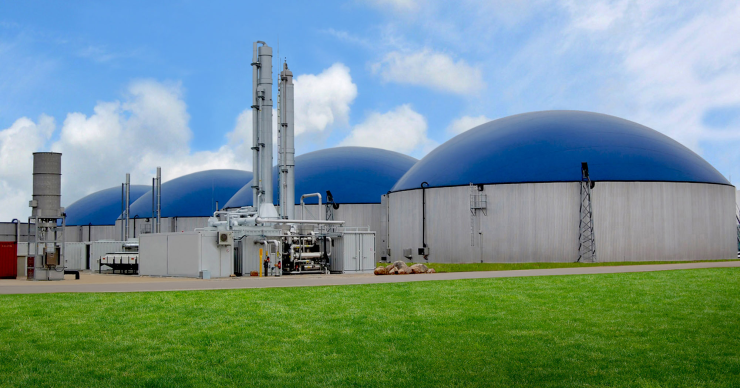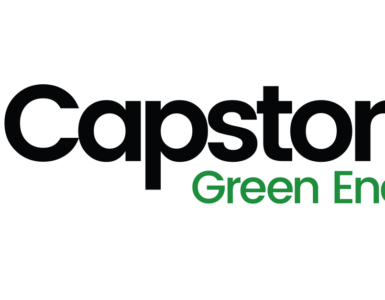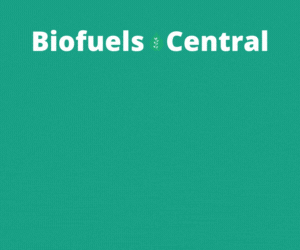Europe rediscovers biogas in search for energy independence – Euractiv.
[Euractiv] The war in Ukraine has given renewable gas a new impetus, with the European Commission proposing to ramp up biomethane production to 35 billion cubic metres (bcm) by 2030, up from 3 bcm in 2020. In Europe, France has taken the lead, EURACTIV.fr reports.The need to reduce the EU’s dependence on Russian gas has cast the spotlight on the gas package of legislation presented by the European Commission on 15 December, just two months before Russia invaded Ukraine.
Phuc-Vinh Nguyen, a researcher at the Jacques Delors Institute’s Energy Centre, said:
🔥 What about we co-host a webinar? Let's educate, captivate, and convert the biofuels economy!
Biofuels Central is the global go-to online magazine for the biofuel market, we can help you host impactful webinars that become a global reference on your topic and are an evergreen source of leads. Click here to request more details
Before the war, the gas package would not have been a priority for the French EU Council presidency.
EU countries are now looking at renewable gas and the Commission’s gas regulation and directive with renewed interest, he told EURACTIV in an interview.
The legislative package proposes to facilitate the adoption of renewable gases “by removing tariffs for cross-border interconnections and lowering tariffs at injection points.” The aim is to guarantee access for these gases to the wholesale market and establish a certification system for low-carbon gases.
Kadri Simson, Energy Commissioner in December.
We are creating the conditions for a green transition in our gas sector by increasing the use of clean gas.
These are major advances, but some in the industry consider them insufficient. The main problem is the lack of clarity and methodology for defining – and differentiating – between the different types of green and low-carbon gases, which critics say risk holding back investments.
Currently, any gas produced from renewable energy resources is considered renewable, including biogas produced from the fermentation of organic matter and biomethane, its improved version which can be directly injected into the grid.
But there are other types of low-carbon gases such as hydrogen, which can be obtained in many different ways, including renewables or fossil fuels. Ensuring that legal definitions allow differentiating between them will therefore be crucial from an environmental perspective.
With gas in the spotlight since the start of the war in Ukraine, EU member states and MEPs will likely revisit the issue during the next negotiations over the legislative text.
The gas package “has clearly received much more attention than we would have expected,” says Nguyen. “This may lead to much more ambitious targets,” he added.
Russia’s war in Ukraine exposed the bloc’s heavy reliance on third-country energy imports, particularly from Russia. According to the International Energy Agency (IEA), the EU imports 90% of its natural gas, almost half of which (45%) comes from Russia.
The advantage of renewable gas is that it can be produced within Europe, which is why the European Commission has made it a priority in its REPowerEU plan that aims to move away from Russian gas “well before 2030”.
The plan “will aim to diversify gas supplies, accelerate the deployment of renewable gases and replace gas in heating and power generation,” the Commission said.
Biomethane and green hydrogen are high on the list of priorities in Brussels. The Commission plans to increase biomethane production to 35 billion cubic metres (bcm) by 2030, up from 3 bcm in 2020. Production should already be increased by 0.5 bcm before the end of the year. By the end of the decade, this should replace 20% of gas imported from Russia.
With these new targets, around 10% of the bloc’s energy needs should be covered in 2030, according to the European Biogas Association (EBA). And if the trend continues, 30-40% of the EU’s gas demand could be covered by 2050.
Harmen Dekker, EAB director said in a statement, said:
Promoting the rapid development of biomethane will contribute to climate change mitigation, reduce dependence on external gas supplies and cope with an unprecedented increase in natural gas prices.
With this in mind, the association is calling for the biomethane strategy to be included in the EU’s recast Renewable Energy Directive, which is currently being discussed by the European Parliament and EU member states.
France’s potential
Biogas would thus provide a real opportunity to boost Europe’s energy independence. This was the message conveyed by the French EU Council presidency at a March conference on “Strengthening European energy autonomy and making a success of the ecological transition”.
Invited to speak at the event, Jean-François Carenco, president of the French Energy Regulation Commission, stressed that biomethane “responds first of all to the gas supply crisis” but that it also has the advantage of “providing agricultural income, treating waste and bringing life to rural areas”.
Aware of the potential of biogas, France has already invested in the technologies needed to develop it on its territory. As of 31 December 2021, for example, the country counted 365 installations designed to inject biomethane into natural gas networks, with a capacity of 6.4 terawatt-hours (TWh) per year.
In an effort to take this a step further, the French government has recently implemented other measures like reducing the cost of connecting methanisation units to the natural gas network.
On 2 March, Ecological Transition Minister Barbara Pompili signed an order raising the level of support for connection costs from 40% to 60%. “By signing this decree, we are facilitating [the] development [of biomethane] by simplifying the setting up of projects and [by] reducing the cost of their connection. This is a strong signal that we are sending to the sector,” the minister said in a statement.
Barbara Pompili, Ecological Transition Minister, said at the launch of France’s Resilience Plan, on 16 March, said:
We are also mobilised to increase our biogas production capacity, which I would remind you has been multiplied by 5 over the last two years and will represent 10% of our gas consumption by 2030.
These messages of support coming from policymakers are aimed at reassuring industrialists and their financiers.
Valérie Weber-Haddad, director in charge of heat, cold and transport at the French Renewable Energy Union, in an interview with EURACTIV, said:
When you invest in a methanisation unit, it is for 15 to 30 years. The investments are heavy, so we need a long-term signal on the economic framework.
Methanisation should come out on top
Another signal came from a spokesperson of President Emmanuel Macron, who faces far-right leader Marine Le Pen in the French presidential election run-off on 24 April.
During the presentation of his climate programme at a March event organised by the association Equilibre des énergies, Anthony Cellier, an MP of Macron’s LREM party, stressed that “biogas is part of France’s energy strategy”.
Jean-Charles Colas-Roy, another MP in Macron’s party, said he was convinced that “we will increase the objectives” for renewable gas in France’s next multiannual energy programme.
However, according to Nguyen, biogas technology “is not yet fully capable of producing as much as we would like”. That is why this solution has until now not been flagged as a top political priority. “But today we have our backs to the wall, so we will have to make technological bets,” the expert added.
Methanisation is likely to come out on top as the preferred technology. It produces a high yield, the gas can be used in the existing network and “it is in France that the technology is the most mature at the moment,” Nguyen added.
In a 2018 study, the French ecological transition agency (Ademe) estimated the “theoretical potential” for renewable gas in France will exceed the level of demand expected in 2050.
To make this a reality, the agency listed a number of conditions such as the faster deployment of agricultural methanisation projects, better use of biomass deposits, or the need to better integrate the gas and electricity grids.
With such potential, France could trigger a European dynamic on biomethane, according to industry experts.
Catherine Macgregor, the CEO of French energy utility Engie, who spoke at the March conference organised by the French EU Council Presidency, said:
In the very short term, we can double biomethane production in 2022 and double it again in 2023 in Europe.
READ the latest news shaping the biofuels market at Biofuels Central
Europe rediscovers biogas in search for energy independence, source








